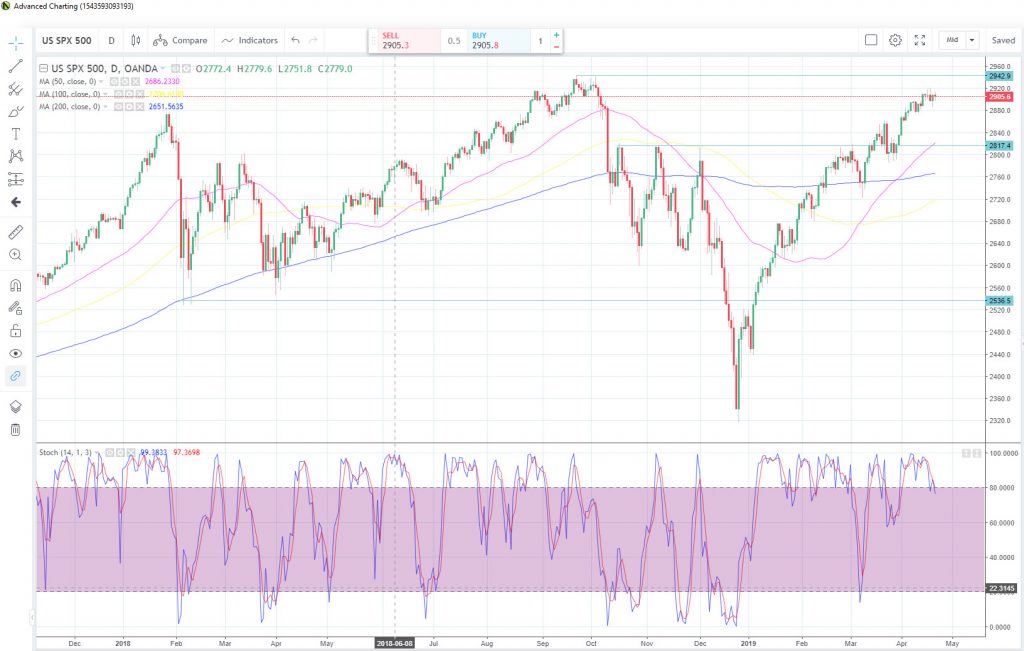S&P 500 takes aim for fresh record highs
The S&P 500 Index has had a relentless rally following the key bottom placed on Christmas Eve. The robust rebound surprised many – including yours truly – as a key streak was snapped. Up until that point, US stocks had never seen a non-recessionary 20% plunge with a swift rebound that did not include a retest of the lows. The importance of that tidbit is that is one of the key reasons that portfolio managers may be chasing their benchmarks over the coming quarter.
The Federal Reserve is the main reason that equities have been so strong. The Fed’s key pivot made in January corrected the December QT (quantitative tightening) on autopilot mistake and they noted a more patient approach, which opened the door for the other major central banks to end any ideas of tightening.
One of the biggest headwinds during the last quarter occurred when the U.S. 10-year Treasury yield fell below the 3-month bill, signaling the Fed’s favorite yield curve inversion, a potential sign that a recession could be imminent. Recession worries and global growth concerns, however, were alleviated following trade optimism and somewhat stabilizing economic readings from China and Europe.
Looking ahead, it appears that by the middle of the summer, we could see all the headwinds of 2018 become tailwinds. China is no longer deleveraging, the Fed will be patient with raising rates (with some thinking they will cut next), and a trade agreement between China and the US appears to be inevitable.
Stocks had an easier path higher when the bearish argument was gaining traction, but now the bullish bias appears to be getting overcrowded, and we could see stocks in the short-term struggle to recapture last year’s record highs.
Stocks have also benefited from increased M&A speculation and a heavily anticipated number of upcoming IPOs. 2019 was expected to be a record year for IPOs with 234 companies looking to go public and raise $100 billion. That would break the prior record of $96 billion set in 2000. The first quarter saw Levis, Lyft and Pinterest debut with mixed results. Looking ahead, many investors are focused on Uber, WeWork, and Palantir.
Content is for general information purposes only. It is not investment advice or a solution to buy or sell securities. Opinions are the authors; not necessarily that of OANDA Business Information & Services, Inc. or any of its affiliates, subsidiaries, officers or directors. If you would like to reproduce or redistribute any of the content found on MarketPulse, an award winning forex, commodities and global indices analysis and news site service produced by OANDA Business Information & Services, Inc., please access the RSS feed or contact us at info@marketpulse.com. Visit https://www.marketpulse.com/ to find out more about the beat of the global markets. © 2023 OANDA Business Information & Services Inc.




